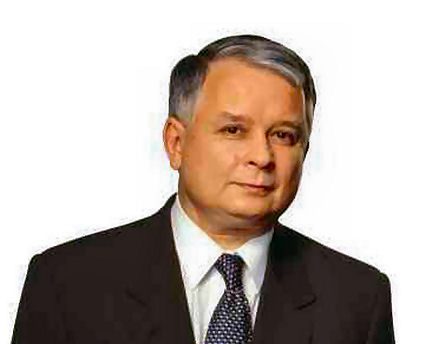ROUNDUP: Polish president cuts pensions to former communists
 Warsaw - Polish President Lech Kaczynski has signed an act that cuts pensions to former communist security services and military council members, according to an announcement on his website Friday.
Warsaw - Polish President Lech Kaczynski has signed an act that cuts pensions to former communist security services and military council members, according to an announcement on his website Friday.
The law, passed by parliament last month, will take effect in 2010. It will strip former security service members and members of the Military Council of National Salvation
(WRON) who imposed martial law in 1981 of their pensions.
The announcement comes on the anniversary of Poland's Round Table talks, when communist officials in 1989 first sat down with Lech Walesa's Solidarity labour union movement to negotiate power-sharing.
The talks paved the way for an independent Poland, and secured free elections in the newly-created Senate and part of Parliament.
In Warsaw on Friday, the original round table was brought out from display in the presidential palace to host a debate among historians. The talks launched at 2:23 pm, the exact time that the banned trade union began negotiations with government 20 years ago.
Walesa spoke to youth in central Poland on Friday, and asked them to not let his generation's work go to waste, the Polish Press Agency PAP reported.
"My generation was largely convinced that if not for us, then maybe it will be better for our kids ..." PAP quoted Walesa, a Nobel Peace Prize laureate, as saying at a ceremony to name a school auditorium after him. "Please, be more active in building, else someone will do it for you."
The Round Table is often seen abroad as the beginning of communism's downfall, but in Poland the event has also given rise to controversy and a slew of conspiracy theories.
Some believe the meeting was infiltrated by Moscow's KGB, or that union leaders were rewarded with quick power for their promises to communists.
President Kaczynski said on Friday that there was no secret agreement in which Solidarity was promised power, and that communists had no sway outside the Kremlin.
"Communist authority had no legitimacy in Poland besides that which lay many hundreds of kilometres to the east," he said. "But should one talk with the usurper? It happens that yes, sometimes it is necessary."
Most Poles value the agreements made at the Round Table, a poll in the daily Rzeczpospolita said. But some 34 per cent are critical of the event.
"This is because of the disenchantment among some Poles with the transformation of the political system," historian Andrzej Paczkowski told the daily.
"Those who didn't fare well in [Poland after communism] often blame that on the changes of the early nineties." (dpa)